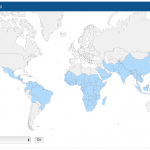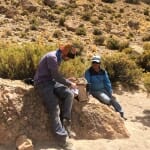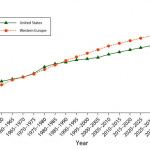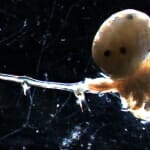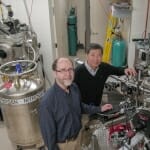Tag Research
Study: “Post-normal” science requires unorthodox communication strategies
Proposals to fight malaria by “driving” genes that slow its spread through mosquitoes is a high-risk, high-reward technology that presents a challenge to science journalists, according to a new report. Read More
Gene-editing tool now being used to develop better antibiotics
Jason Peters and colleagues have repurposed the gene-editing tool CRISPR to study which genes are targeted by particular antibiotics, providing clues on how to improve existing antibiotics or develop new ones. Read More
Flashing lights protect livestock in Chile — by deterring pumas
New UW–Madison research shows how bright, flashing lights can prevent puma attacks on livestock in Chile, without harming the predators. Read More
UW-Madison life-expectancy paper nabs top honor from APHA
Work published by three University of Wisconsin researchers regarding decreasing the gap in life expectancy of the United States population compared to European peers, earned top honors from the American Public Health Association. Read More
Mercury levels in fish fluctuate along with water levels in lakes
A new study has found that when droughts cause water levels to drop, the levels of mercury found in fish also plummet. In wetter weather, water levels rise and levels of mercury in fish increase. Read More
NOAA plan to improve weather forecasting includes UW–Madison
NOAA cooperative institutes, like the University of Wisconsin–Madison Cooperative Institute for Meteorological Satellite Studies (CIMSS), play a key role in mitigating weather-related losses by increasing innovation and research opportunities. Read More
Are Fitbits the answer to nurse fatigue?
A UW–Madison School of Nursing professor is using activity trackers on nurses to uncover important data about what causes fatigue in the work environment and what health systems can do to minimize its impact. Read More
Black youths less protected from antisocial behaviors than white peers
New research assesses the developmental trajectories of antisocial behaviors in both black and white youths. Read More
Forget ‘needle in a haystack.’ Try finding an invasive species in a lake.
A new study may explain why the tiny and invasive spiny water flea passed undetected in Lake Mendota, one of the most-studied lakes in the world, for a decade. Read More
Reaching for the stars: 50 years of space astronomy
In December 1968, the world’s first autonomous space-based astronomical observatory carried seven telescopes from UW–Madison, designed and built by a plucky band of scientists in an unassuming warehouse on South Park Street. Read More
Where the ocean meets the sky, chemists look for clues to our climate
Chemists at the University of Wisconsin–Madison are studying how our past, present and future climates are affected by a complex aerosol made up of seawater, air and bits of organic matter from the organisms that call the ocean home. Read More

